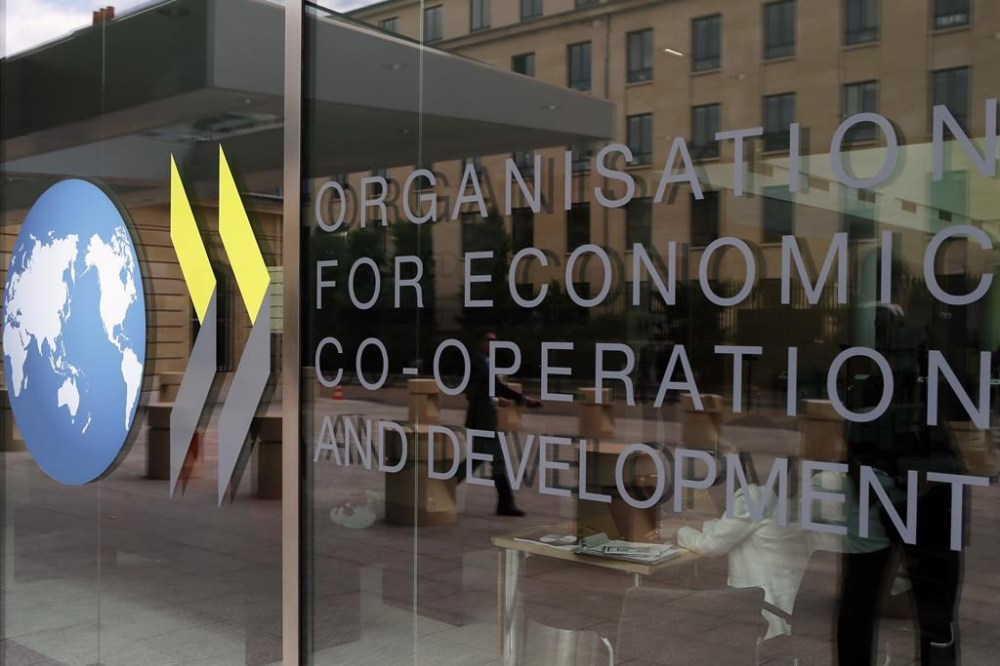OECD: War in Ukraine to drag on global economy into 2023
Advertisement
Read this article for free:
or
Already have an account? Log in here »
To continue reading, please subscribe:
Monthly Digital Subscription
$0 for the first 4 weeks*
- Enjoy unlimited reading on winnipegfreepress.com
- Read the E-Edition, our digital replica newspaper
- Access News Break, our award-winning app
- Play interactive puzzles
*No charge for 4 weeks then price increases to the regular rate of $19.00 plus GST every four weeks. Offer available to new and qualified returning subscribers only. Cancel any time.
Monthly Digital Subscription
$4.75/week*
- Enjoy unlimited reading on winnipegfreepress.com
- Read the E-Edition, our digital replica newspaper
- Access News Break, our award-winning app
- Play interactive puzzles
*Billed as $19 plus GST every four weeks. Cancel any time.
To continue reading, please subscribe:
Add Free Press access to your Brandon Sun subscription for only an additional
$1 for the first 4 weeks*
*Your next subscription payment will increase by $1.00 and you will be charged $16.99 plus GST for four weeks. After four weeks, your payment will increase to $23.99 plus GST every four weeks.
Read unlimited articles for free today:
or
Already have an account? Log in here »
Hey there, time traveller!
This article was published 26/09/2022 (1169 days ago), so information in it may no longer be current.
PARIS (AP) — Russia’s war in Ukraine and the lingering effects of the COVID-19 pandemic are dragging down global economic growth more than expected and driving up inflation that will stay high into next year, the Organization for Economic Cooperation and Development said Monday in a darkening outlook.
The Paris-based organization projects worldwide growth to be a modest 3% this year before slowing further to just 2.2% next year, representing around $2.8 trillion in lost global output in 2023.
The war in Ukraine has driven up food and energy prices worldwide, with Russia a key global energy and fertilizer supplier and both countries major exporters of grain for millions of people worldwide already facing hunger. Meanwhile, China’s COVID-19 lockdowns have shuttered large parts of its economy.

“The war, the burden of high energy and food prices, as well as zero COVID-19 policies from China, mean that growth will be lower, and inflation will be higher and more persistent,” OECD Secretary-General Mathias Cormann told reporters in Paris.
The inflation and energy supply shock led the OECD to project annual economic growth to slow to around 1.5% in the United States this year and just 0.5% next year. The group expects the economy to grow 1.25% this year in the 19 countries using the euro currency, with risks of deeper declines in several European economies during the winter months, and 0.3% in 2023.
It noted the specter of energy shortages in Europe after Russia reduced supplies of natural gas needed to heat homes, generate electricity and power factories. Shortages could send energy prices up worldwide and force businesses to ration, pushing many European countries into a recession next year, the OECD said.
For Canada, the OECD predicted the Bank of Canada would raise its key policy rate, which is set at 3.25 per cent currently, to 4.5 per cent next year.
The organization also downgraded its outlook for growth in Canada to 3.4 per cent this year and 1.5 per cent in 2023. The forecast was down from its June economic outlook that predicted growth in Canada to be 3.8 per cent this year and 2.6 per cent next year.
Growth in China is expected to drop to 3.2% this year. Except in 2020 when the pandemic emerged, it would be the lowest growth rate in China since the 1970s. The group projected it would rise slightly to 4.7% next year.
Inflation is expected to drop gradually through next year in most Group of 20 countries as central banks keep raising interest rates and global growth slows. Headline inflation is projected to ease from 8.2% this year to 6.6% in 2023 in the G-20 economies, but that’s still far above many central banks’ targets of 2%.
“These challenging economic situations will require bold, well-designed and well-coordinated policies,” Cormann said.
The OECD called for short-term help for people hurt the most by rising prices, further interest rate hikes by central banks, climate policies that follow countries’ search for alternate energy sources and international cooperation to strengthen food supplies.




